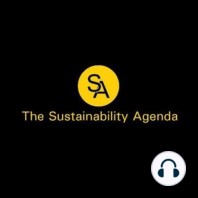37 min listen

Episode 22: Professor Giorgos Kallis: Degrowth and the dangers of excessive economic growth
Episode 22: Professor Giorgos Kallis: Degrowth and the dangers of excessive economic growth
ratings:
Length:
53 minutes
Released:
May 8, 2017
Format:
Podcast episode
Description
In this interview, Professor Giorgos Kallis, a leading degrowth thinker, provides an overview of evolving theories of degrowth. Degrowth theorists argue for a reduction in production and consumption, arguing that overconsumption is at the root of many of the long term environmental issues and social inequalities facing the world today. Professor Kallis highlights the importance not just of reducing consumption, but also of different ways of consuming, like the sharing economy, and also connecting consumption with production. Looking to the future, he explores the likely impact of increasing pace of automation on the economy.Professor Kallis is a Leverhulme visiting professor at SOAS and an ICREA professor at ICTA, Autonomous University of Barcelona. He is a leading thinker in the emerging field of degrowth, based on ecological economics, aims to achieve a steady state of growth that allows the economy to operate within the Earth’s biophysical limits. Giorgos is the co-editor of Degrowth: a vocabulary for a new era.The post Episode 22: Professor Giorgos Kallis: Degrowth and the dangers of excessive economic growth appeared first on The Sustainability Agenda.
Released:
May 8, 2017
Format:
Podcast episode
Titles in the series (100)
Episode 10: Paul Dickinson | The crucial importance of corporate climate change data: Paul Dickinson founded CDP, formerly the Carbon Disclosure Project, in 2000 with a vision to help the global economic system operate within sustainable environmental boundaries, and to prevent dangerous climate change. CDP manages a data platform that ga by The Sustainability Agenda